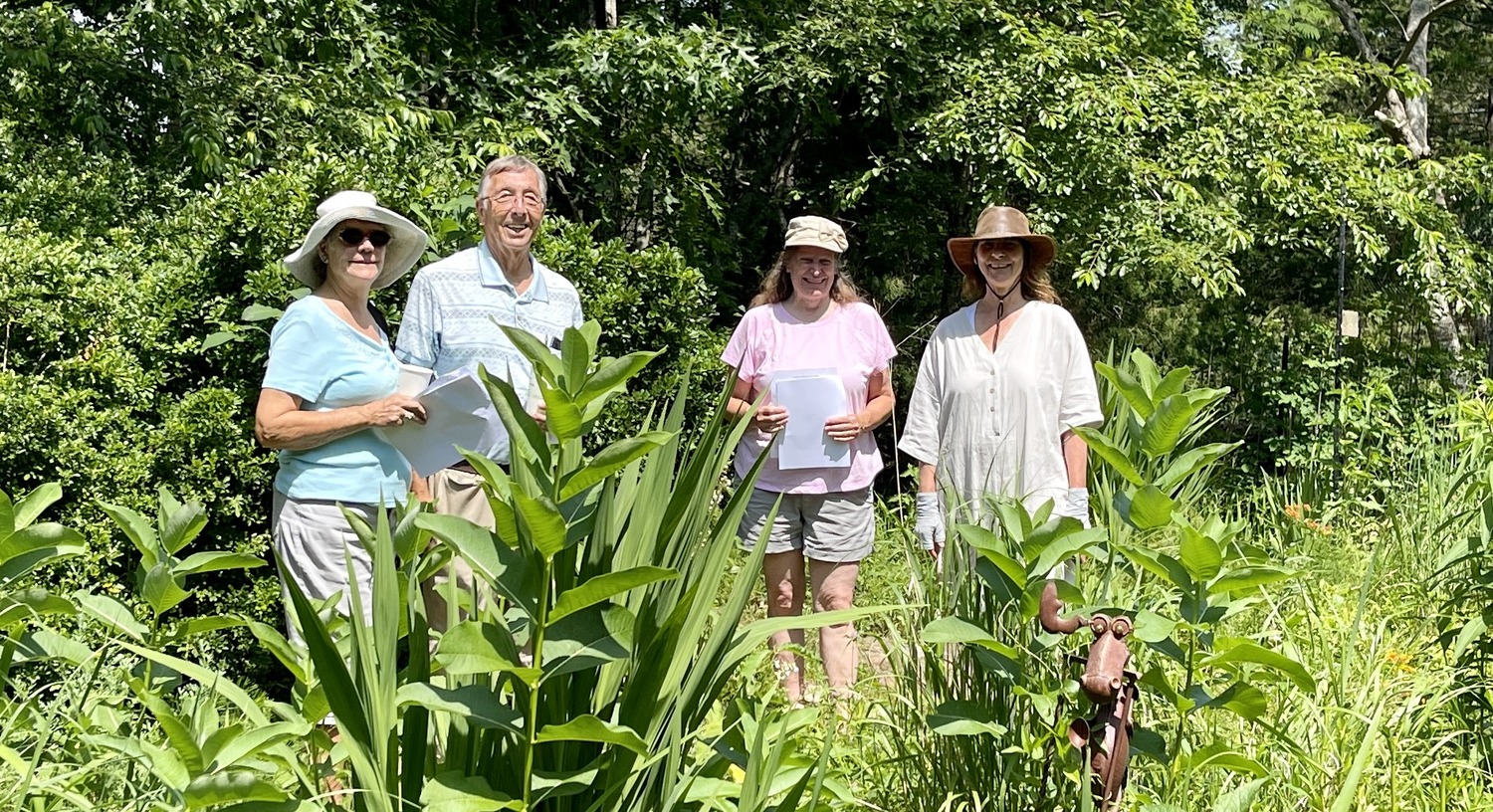
Responding to growing interest in learning how to incorporate native and pollinator plants in existing gardens, the South Fork branch of the Suffolk Alliance for Pollinators offered its second complimentary self-guided tour of five private and three public gardens on June 20.
Co-chairs Alicia Whitaker of the Westhampton Garden Club and Marissa Nelson of the Quogue Wildlife Refuge, assisted by Peggy Veziris and Susanne Jansson, noted that this was an opportunity to learn firsthand from hosts in varied gardens in Westhampton, Remsenburg, Quogue and East Quogue.
First stop was the Quogue Library Pollinator Garden to sign in and receive a list of locations. The library’s recent renovation and expansion opened the property, enabling WGC members to plant and maintain an educational organic — no pesticides — pollinator garden with a variety of native plants that bloom at different times through the growing season. At the sign-in, 16-year-old Westhampton Girl Scout Adelina Scott gave out 50 milkweed plants she had grown for her Gold Award project, each with an information tag.
The Quogue garden on the tour was a great example of how a gardener can change the character of plantings by removing invasive plants, reducing the lawn with wider planting beds and adding native plants. East Quogue’s Bay Avenue Native Plant Garden demonstrated how a neglected park was transformed by a community garden using native plants. This inspired other upgrades in the park’s marina facilities and access to vistas of the bay.
Thanks to many benefactors, the Butterfly Garden at the Quogue Wildlife Refuge contains native plants and flowers that attract butterflies, bees and hummingbirds, becoming a special place to visit. It is open to the public sunrise to sunset free of charge.
Homeowners on Quiogue saw their property come alive with wildlife after planting natives and began enlarging beds and adding more natives every year. The next experiment was replacing the privet hedge with a mixed native shrub border.
Inspired by entomologist and conservationist Doug Tallamy, a Westhampton homeowner rewilded her acre and a half with a wide variety of native trees, shrubs, perennials and pollinator-friendly annuals while getting rid of as much lawn as possible.
The Barefoot Gardener, Suzanne Ruggles, also in Westhampton, has been a 35-year leader in the use of native plants for their eco-friendly characteristics, ease of care and safety to soil, air and water.
Remsenburg’s homeowner reimagined her property that had an English-style garden with a huge variety of natives all grown with ecological gardening practices. She also created an example of how to use natives in a formal garden framework with raised beds and rose arbors.
Tour organizers were energized by the response and plan to repeat the tour in 2025.
Lynda Confessore is the communications chair of the Westhampton Garden Club and all its committees, events and activities, and a board member.